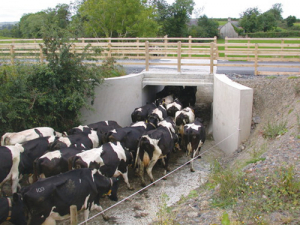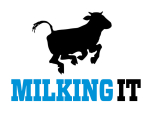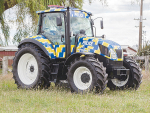Ashburton police say they have visited the farm which reported the 500-cow loss and taken statements. Farm administrator Pennie Saunders put an appeal on Facebook for anyone who had heard or seen anything suspicious.
Nearby farmer Jill Quigley says they had 36 Kiwi Cross cows stolen in December or January and another property had 18 disappear earlier this year – all within a 20km area. She fears more farms may report losses as they bring the cows in for calving.
"It certainly makes everybody security conscious but short of sleeping under a tree where your cows are grazing, what can you do?" she asks.
"A lot of us have security cameras, but they only cover a certain area.
"I just hope they can get to the bottom of it, because how many others have gone missing that people haven't picked up on yet?" Quigley said to Rural News.
"The cows are coming back in for calving after grazing and people will be doing head counts. I just hope no others have gone."
She says with the NAIT tags they thought their 36 cows would be tracked down, but they weren't.
"Whoever is doing this is well organised; they know the system and how they can beat it; this is extremely frustrating.
"This type of stuff is scary because somebody could get hurt if somebody catches these people in the act; people will only put up with so much."
Quigley says the Saunders are great farmers and she is at a loss, along with the rest of the community, to know how this happened.
When the Quigleys lost their 36 cows over two weeks, the police investigated "and we obviously did a lot of digging and delving and investigating, but nothing ever came of it". They simply vanished," she says.
"Ours were stolen when they were being milked so that is how we got onto it quickly because obviously the ProTrak [milking data system] told us we were down on our numbers and production."
The reported missing 500 cows – from a herd of 1300 – went missing during winter grazing so were not quickly picked up. Its early days in the 500 cow investigation, but they seem to "have just vanished too," Quigley says.
"It is frightening trying to farm; it is hard enough trying to make a living the way things are without this carry-on happening.
"I am hoping somewhere the police will get some leads and can nip this in the bud."
She doesn't know of thefts in other seasons.
"We got to the stage when ours went that we exhausted all our possibilities and the police did the same and we just had to say 'right we've got to get on and recover the costs and keep going' or it would have done our heads in.
"We had just put it aside, then this brought it all back again. We want to stand alongside them and support them and see justice done."
Police say they cannot comment further while the investigation is underway.



















